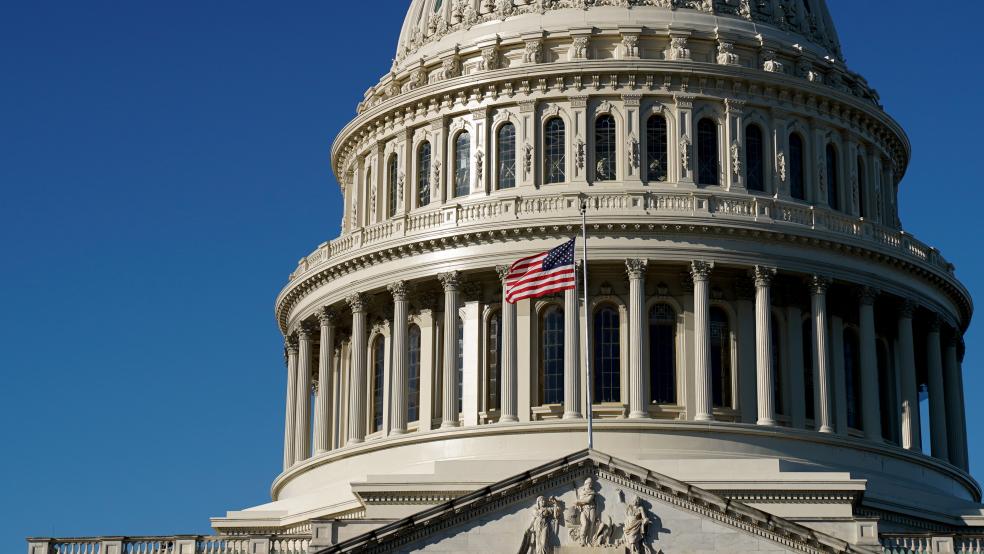Democrats’ Inflation Reduction Act would cut federal budget deficits by more than $100 billion through 2031, according to an analysis published Wednesday by the Congressional Budget Office. When projected revenue increases from enhanced Internal Revenue Service enforcement are factored in, the deficit savings total more than $300 billion.
And a new report by the Committee for a Responsible Federal Budget finds that the longer-term savings would be far higher, totaling $1.9 trillion over two decades.
Even if expanded Affordable Care Act subsidies — slated to be extended for three years in the new bill — are eventually made permanent, the bill would still reduce deficits by $1.1 trillion over 20 years, CRFB says.
"There are several reasons why net deficit reduction in the IRA is much larger over the next two decades, on a per year basis than in the first nine years alone," CRFB explains in a blog post. "First, much of the prescription drug savings don't begin to materialize until 2027, when negotiated drug prices first take effect and the current law hiatus on the rebate rule ends. Second, those prescription drug savings will grow rapidly over time as Medicare is able to negotiate the price of more prescription drugs (they negotiate 20 per year). Third, much of the energy and climate spending represents a one-time investment and will be fully spent by late this decade. And fourth, interest savings accumulate and compound over time, particularly as rates are projected to rise."
Budget
Inflation Reduction Act Could Save Nearly $2 Trillion Over 20 Years: Analysis

Reuters/Erin Scott



